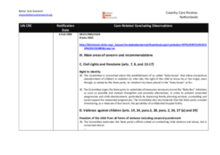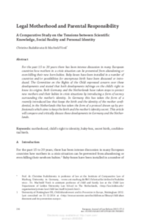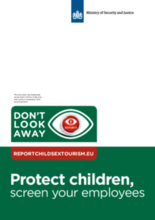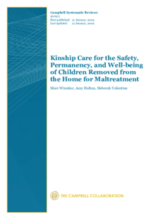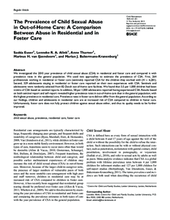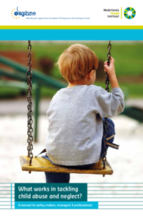Displaying 101 - 110 of 114
In this study 59 children between 10 and 18 years placed in long term foster care in the Netherlands completed standardized questionnaires on the relationship with their parents respectively foster parents and their wellbeing.
This country care review includes the care related Concluding Observations adopted by the Committee on the Rights of the Child.
This article explores the use of baby boxes in Germany and the Netherlands.
This review of literature covers international material related to stability and permanence for disabled children, in particular permanence achieved through fostering and adoption.
The Dutch Ministry of Security and Justice has developed this flyer, along with ECPAT Netherlands, Better Care Network Netherlands and Terre des Hommes Netherlands, to motivate foreign organizations working with children to ask for a Certificate of Conduct when recruiting Dutch volunteers or employees.
In November 2014 a two-day international conference on children’s rights will take place in Leiden, the Netherlands, to herald the 25th anniversary of the adoption of the UN Convention on the Rights of the Child (CRC).
This systematic review published by the Campbell Collaboration reviewed controlled experimental and quasi experimental studies in which children removed from the home for maltreatment and subsequently placed in kinship care were compared with children placed in non-kinship foster care for child welfare outcomes in the domains of well-being, permanency, or safety.
This article reviews the history and development of out-of-home care services in Germany and the Netherlands comparing trends and numbers.
Researchers investigated the prevalence of child sexual abuse in foster care and residential care facilities and found that 3.5 children per 1,000 had been victims of child sexual abuse.
This manual is the main outcome of the European Commission Daphne III programme, Prevent and Combat Child Abuse: What works? Involving regional exchanges and research from five countries (Germany, Hungary, Portugal, Sweden and the Netherlands), this manual brings together knowledge on what works in tackling child abuse. The manual suggests evidence and practice-based prevention and response strategies against child abuse and neglect, including programs and services that have been shown to be successful in strengthening family care.

